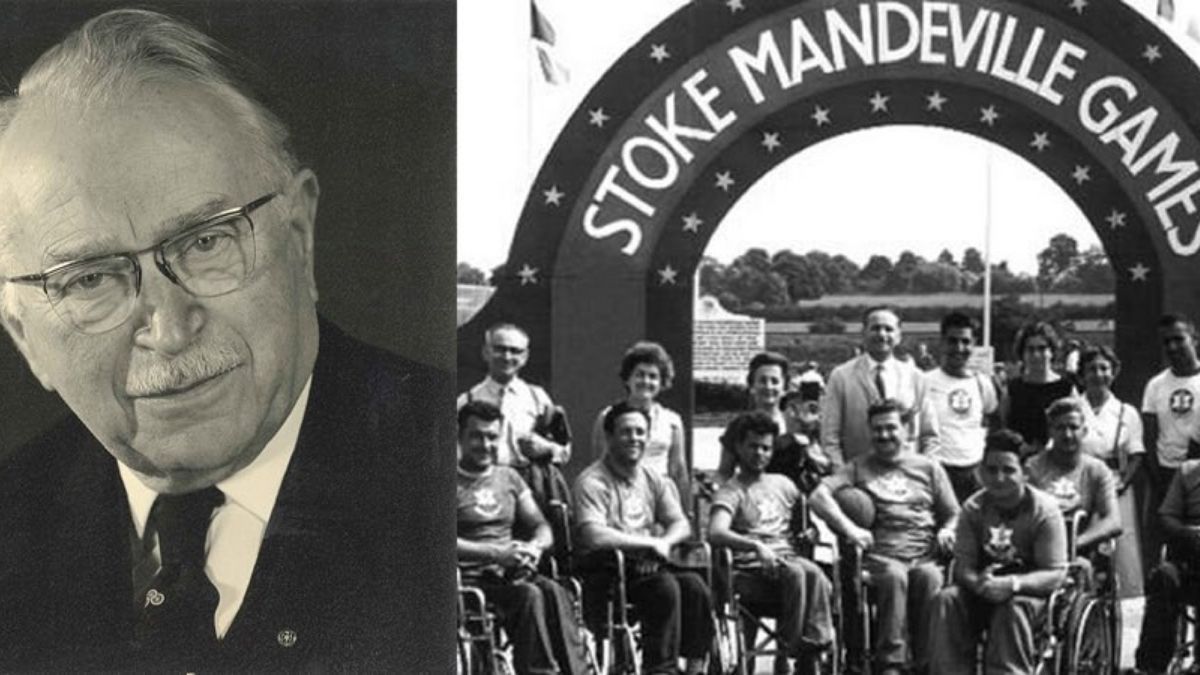
Dr. Ludwig Guttmann was a Jewish-German neurosurgeon who had the radical idea that patients with spinal cord injuries could be competitive athletes. He created the Paralympic Games and forever changed the way society views disabled people – and the way they view themselves.
Ludwig was born in Germany in 1899 to an Orthodox family. At age 18, he volunteered in a hospital that treated mining workers. One day, a young man was admitted who had broken his back in a mining accident. The patient was paralyzed from the waist down, but the rest of his body was strong. Ludwig was shocked when the hospital staff told him there was nothing to be done for people with spinal cord injuries but wait for them to die. They wrapped this vigorous young man’s body in plaster and moved him to an isolation wing, where he developed sepsis and died five weeks later. “Although I saw many more victims suffering the same fate,” Ludwig said, “it was the picture of that young man which remained indelibly fixed in my memory.”
After attending medical school in Freiburg, Ludwig worked with Europe’s leading neurologist Dr. Otfrid Foerster. In 1928, Ludwig started a neurosurgical unit at a hospital in Hamburg, and by 1933 he was considered one of the top neurosurgeons in Germany. When the Nazis came to power Jews were banned from practicing medicine and Ludwig lost his job. In 1939 he left Germany with his family and moved to Oxford, England, where he worked as a researcher.
In 1943, Ludwig was asked by the British Government to direct a new Spinal Injury Centre at Stoke Mandeville Hospital. He agreed to take the job, but only if he was free to treat patients as he saw fit without any outside interference. Ludwig was determined to change the medical establishment’s defeatist attitude toward spinal cord injuries. He believed that patients could lead full, independent and happy lives. At Stoke Mandeville, Ludwig instituted educational programs so that patients could learn new skills to make them employable. These programs included carpentry, typing, and watch repair.
A crucial part of the Stoke Mandeville rehabilitation program was athletics. Since there was virtually no precedent for wheelchair sports, Ludwig and his staff had to make them up. The first sport was wheelchair polo using walking sticks and a puck, soon to be replaced with wheelchair basketball. The first athletic competition at Stoke Mandeville took place on July 28, 1948 – the same day as the London Olympics. Fourteen injured service people competed (12 men and 2 women) in one sport, archery. A trophy cup was awarded to the winner.
Only one year later, the competition had grown to include more hospitals, more participants, and more sports. Ludwig said, “I foresaw the time when this sports event would be truly international and the Stoke Mandeville Games would achieve world fame as the disabled person’s equivalent of the Olympic Games.” In 1952, a group of disabled Dutch veterans became the first competitors from overseas. By 1954, there were athletes from Canada, Australia, Finland, Egypt and Israel. In the late 1950’s, Ludwig reached out to the Olympic Games Committee to see if the Stoke Mandeville Games could be scheduled to coincide with the 1960 Olympics in Rome. The Olympic Committee agreed, and disabled athletes came to Rome from 21 countries, playing in the same facilities and sharing the same accommodations as the able-bodied athletes.
The games became known as the Paralympics. Ludwig died in 1980, but his dream continues to grow. In March, 2022 the Winter Paralympics will begin in Beijing featuring over thousands of athletes from over 170 countries competing in 78 events.
For refusing to accept the status quo, and giving hope and inspiration to generations of disabled athletes, we honor Dr. Ludwig Guttmann as this week’s Thursday Hero at Accidental Talmudist.
Get the best of Accidental Talmudist in your inbox: sign up for our monthly newsletter.